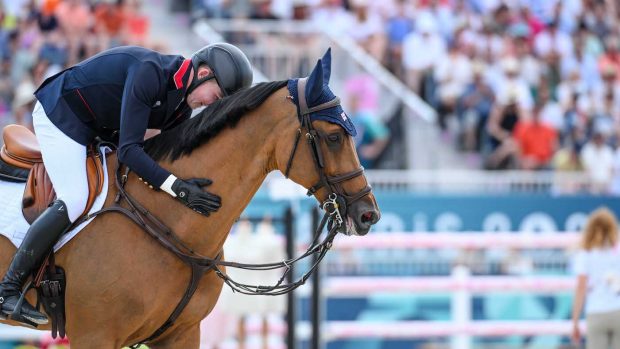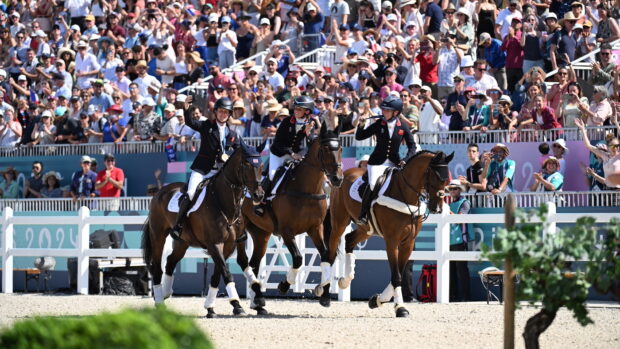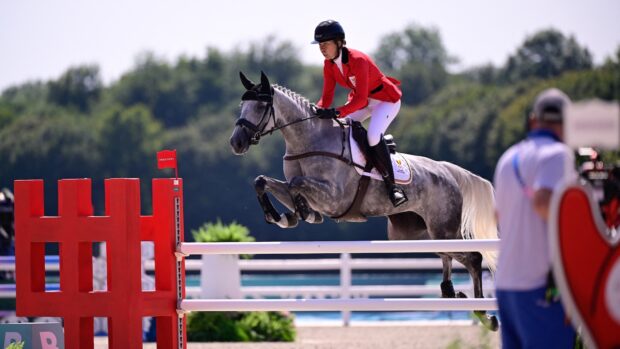Graham Fletcher on pressure, beauty and the perfect result for Britain at the Paris Olympics
What a brilliant achievement for Ben Maher, Harry Charles and Scott Brash to bring home the team gold medal from Paris. In terms of riding and horsemanship, it was the best I’ve ever seen. All three were 11 out of 10.
They didn’t start as favourites – a major bookmaker had Britain to win team gold at 25/1 – which underlines just what an amazing feat this British team pulled off.
I’ve always said that the epitome of class is making a hard job look easy, and no rider personifies that more so than Ben; he’s a beautiful rider to watch. Harry Charles, showing a maturity beyond his years, was outstanding. In years to come, he’ll ride rounds as good as Friday’s – but he’ll never ride a better one. And Scott, under the immense pressure of having to jump a big and difficult course knowing he must go clear for the gold, proved he really is the “ice man”.
I love the Olympics. To me, it’s the greatest show on earth and the French have done it masterfully with their undoubted flair. The equestrian setting at Versailles was absolutely stunning.
Total pressure
There has been criticism of the scoring method of all three to count – replacing the best three of four. I know a lot of top riders don’t like it, and I can understand why; it’s total pressure. As you could tell from the tense and ashen faces of some of the Paris Olympic showjumpers, it’s a bit like asking turkeys if they’d vote for Christmas. And when you’ve competed throughout your career with the comfort blanket of a drop score, it now becomes a whole new ball game.
Under the new all-three-to-count system, the margin for error has become even smaller too. But there’s no doubt the format makes for riveting viewing and it could be argued that it has put showjumping on a par with some other successful modern-day sports. I think that under this format the pendulum also swings from which team has the best four horses to which has the best three riders.
I thought the Paris Olympics course-designers Santiago Varela and Grégory Bodo did a fantastic job. Not just the beautiful aesthetics of some breathtaking fences, but the way they were built too.
The first course was big but mainly asking questions about carefulness; whereas you needed more scope to jump the second course, particularly in
the combination.
Full credit to them that from the start to the finish, not one team failed to get through because of an elimination on course.
For me, the most important aspect of this team competition was that it was seen by legions of the public – the people who used to enjoy showjumping only to find that it’s disappeared not only from mainstream TV, but there’s also very little on the satellite channels either.
On Friday, however, they were able to watch a thrilling competition with an easy-to-understand formula, unbelievable tension and drama unfolding with every round. Plus, of course, the perfect result for the Brits.
It has been said that equestrianism’s inclusion in future Olympic Games hangs in the balance. But with sold-out, enthusiastic crowds of around 20,000 people at every Olympic performance in Paris and some great television, I can’t believe it won’t be included.
● Do you thing the new Olympic format is better? Let us know at hhletters@futurenet.com, including your name, nearest town and country, for the chance for your letter to appear in a forthcoming issue of the magazine
- To stay up to date with all the breaking news throughout the Paralympic Games, Burghley, HOYS and more, subscribe to the Horse & Hound website
You might also be interested in:

They’ve done it! Scott Brash secures Olympic team gold for Britain

‘Probably the best round of my life’: Harry Charles and Romeo’s fabulous Olympic clear keeps Britain on top

Pathfinder Ben Maher puts Great Britain in pole position in Olympic showjumping team final

‘We can’t hide behind silly excuses’: surprises in Olympic showjumping first round, but Britain on form

Subscribe to Horse & Hound magazine today – and enjoy unlimited website access all year round




